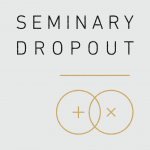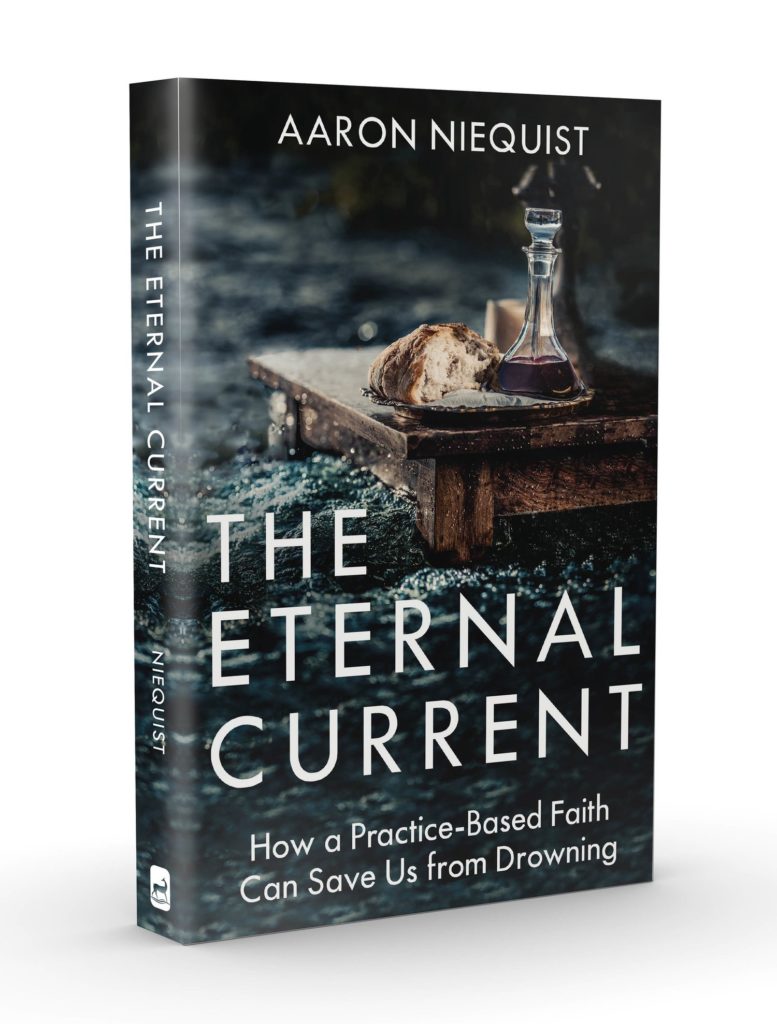
This Week on Seminary Dropout…
Aaron Niequist is a liturgist, writer, in the New York City. After leading worship at Mars Hill Church (Grand Rapids, MI) and Willow Creek Church (Barrington, IL), Aaron created A New Liturgy- a collection of modern liturgical worship recordings. Shortly after, Aaron started a discipleship-focused, formational, ecumenical, practice-based community at Willow Creek called The Practice. Since writing ‘The Eternal Current: How a Practice-Based Faith Can Save Us from Drowning’, he’s continued to create resources to help us all flesh it out.

A call for Christians to move past the shallows of idealized beliefs and into a deeper, more vibrant, beatitude-like faith rooted in sacred practices and intimate experiences with God.
When the limits of his own faith experience left him feeling spiritually empty, Niequist determined God must have a wider vision for worship and community.
In his search, Aaron discovered that there was historical Christian precedent for enacting faith in a different way, an ancient and now future way of believing. He calls this third way “practice-based faith.”
This book is about loving one’s faith tradition and, at the same time, following the call to something deeper and richer. By adopting some new spiritual practices, it is possible to learn to swim again with a renewed sense of vigor and divine purpose.


Missio Alliance Comment Policy
The Missio Alliance Writing Collectives exist as a ministry of writing to resource theological practitioners for mission. From our Leading Voices to our regular Writing Team and those invited to publish with us as Community Voices, we are creating a space for thoughtful engagement of critical issues and questions facing the North American Church in God’s mission. This sort of thoughtful engagement is something that we seek to engender not only in our publishing, but in conversations that unfold as a result in the comment section of our articles.
Unfortunately, because of the relational distance introduced by online communication, “thoughtful engagement” and “comment sections” seldom go hand in hand. At the same time, censorship of comments by those who disagree with points made by authors, whose anger or limited perspective taints their words, or who simply feel the need to express their own opinion on a topic without any meaningful engagement with the article or comment in question can mask an important window into the true state of Christian discourse. As such, Missio Alliance sets forth the following suggestions for those who wish to engage in conversation around our writing:
1. Seek to understand the author’s intent.
If you disagree with something the an author said, consider framing your response as, “I hear you as saying _________. Am I understanding you correctly? If so, here’s why I disagree. _____________.
2. Seek to make your own voice heard.
We deeply desire and value the voice and perspective of our readers. However you may react to an article we publish or a fellow commenter, we encourage you to set forth that reaction is the most constructive way possible. Use your voice and perspective to move conversation forward rather than shut it down.
3. Share your story.
One of our favorite tenants is that “an enemy is someone whose story we haven’t heard.” Very often disagreements and rants are the result of people talking past rather than to one another. Everyone’s perspective is intimately bound up with their own stories – their contexts and experiences. We encourage you to couch your comments in whatever aspect of your own story might help others understand where you are coming from.
In view of those suggestions for shaping conversation on our site and in an effort to curate a hospitable space of open conversation, Missio Alliance may delete comments and/or ban users who show no regard for constructive engagement, especially those whose comments are easily construed as trolling, threatening, or abusive.